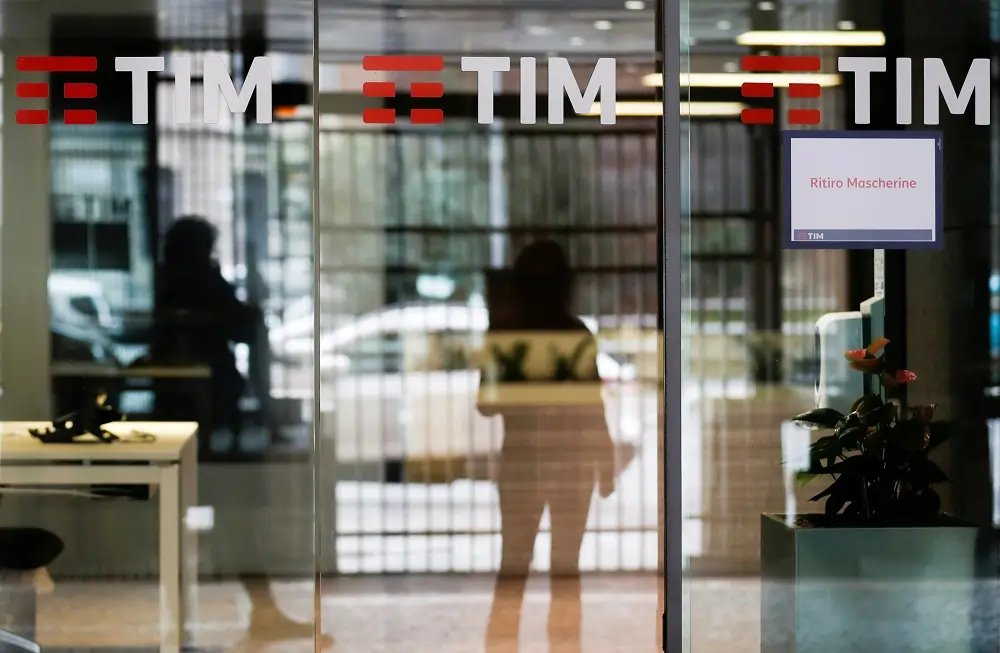Telecom Italia seeks Vivendi’s views on simpler structure, sources say
Published by Jessica Weisman-Pitts
Posted on December 27, 2024
3 min readLast updated: January 27, 2026

Published by Jessica Weisman-Pitts
Posted on December 27, 2024
3 min readLast updated: January 27, 2026

By Elvira Pollina
MILAN (Reuters) – Telecom Italia (TIM) is seeking to engage with its main shareholder Vivendi to try to eliminate a dual class of shares and simplify its structure following the sale of its landline grid, two sources said.
Relations have been strained by Vivendi’s opposition to TIM’s decision to sell its prized network to a consortium of investors led by U.S. fund KKR and including the Italian Treasury.
TIM CEO Pietro Labriola needs to establish whether Vivendi would support some steps that require approval from a qualified majority of shareholders, two sources with knowledge of the matter told Reuters.
TIM and Vivendi declined to comment.
The Paris-listed group, which this month became a holding company following an asset spin-off, has a near 24% stake in TIM.
Labriola is studying how eliminate a dual class of shares to protect TIM’s cashflow and streamline the company’s structure, as part of efforts to resume dividend payments that TIM halted in 2022.
One of the possibilities TIM is considering is the repurchase, at least in part, and the cancellation of its savings shares – which give holders a right to a dividend if the parent company delivers a profit – the people said.
They asked not to be named because deliberations are not public.
Another step the former phone monopoly is evaluating is incorporating into the parent company two Luxembourg-based holding companies TIM has used to issue bonds, the people said.
To sound out Vivendi over any move before putting it to a shareholder vote and try to reduce the risk any proposal is rejected, Labriola is considering a confidentiality agreement, the sources said.
That would allow TIM management to sit down with Vivendi representatives and go over the possible alternatives, the people said.
Labriola would also offer TIM’s second largest investor, Italian state lender CDP, the confidentiality agreement, one of the sources said. CDP declined to comment.
Vivendi in January 2023 withdrew its representative from TIM’s board, distancing itself from TIM’s strategy centred on the sale of the former phone monopoly network assets.
The sale, which Vivendi has said undervalued the asset, has stabilised TIM’s finances that were weighed down by debt, but it has yet to benefit shareholders.
Vivendi, which is challenging TIM decision to sell the network in court, no longer considers the holding strategic and is open to a potential sale of its stake, which is worth 882 million euros ($917.10 million).
The file has drawn interest from private equity firms, including CVC, which has held preliminary talks with Vivendi, according to two separate sources close to the matter. Vivendi and CVC declined to comment.
($1 = 0.9617 euros)
(Reporting by Elvira Pollina in Milan; Editing by Valentina Za and Barbara Lewis)
A dual class of shares refers to a corporate structure where two classes of shares exist, typically with different voting rights. This allows certain shareholders, often founders or executives, to maintain control over company decisions despite owning a minority of shares.
A shareholder is an individual or institution that owns shares in a company. Shareholders have a claim on part of the company's assets and earnings, and they may receive dividends based on the company's performance.
A dividend is a payment made by a corporation to its shareholders, usually as a distribution of profits. Dividends can be issued in cash or additional shares and are typically paid on a regular basis.
Corporate governance refers to the systems, principles, and processes by which a company is directed and controlled. It encompasses the relationships among the company's management, board, shareholders, and other stakeholders.
Explore more articles in the Business category











